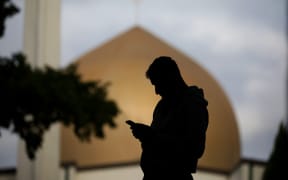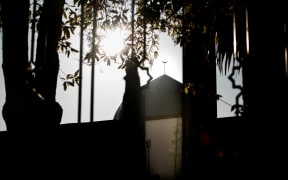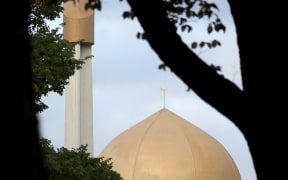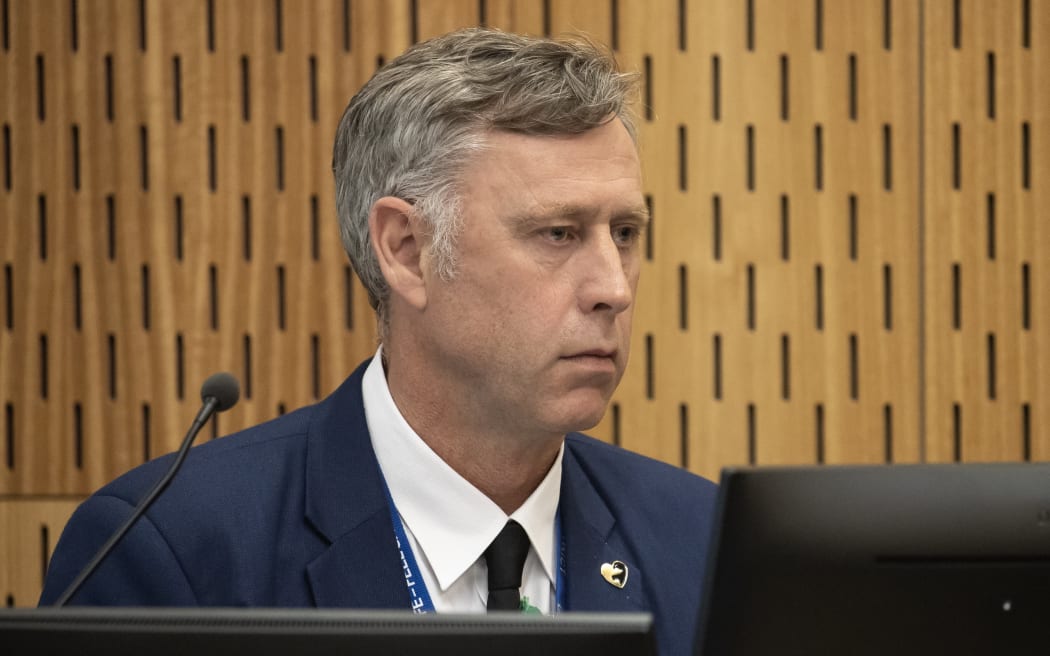
Detective Senior Sergeant Craig Farrant. Photo: Pool / Iain McGregor / The Press
A senior officer who helped lead the initial police response to the 2019 Christchurch mosque shootings has described to the court the magnitude of the investigation.
The six-week long inquest into the Christchurch terror attack where 51 worshippers at Al Noor Mosque and Linwood Islamic Centre were murdered began on Tuesday morning.
In her opening address, deputy chief Coroner Brigitte Windley acknowledged and welcomed all those in the courtroom and watching from afar.
She paid her respects to whānau and friends who lost loved ones and commended them on their positive engagement and patience with the inquiry.
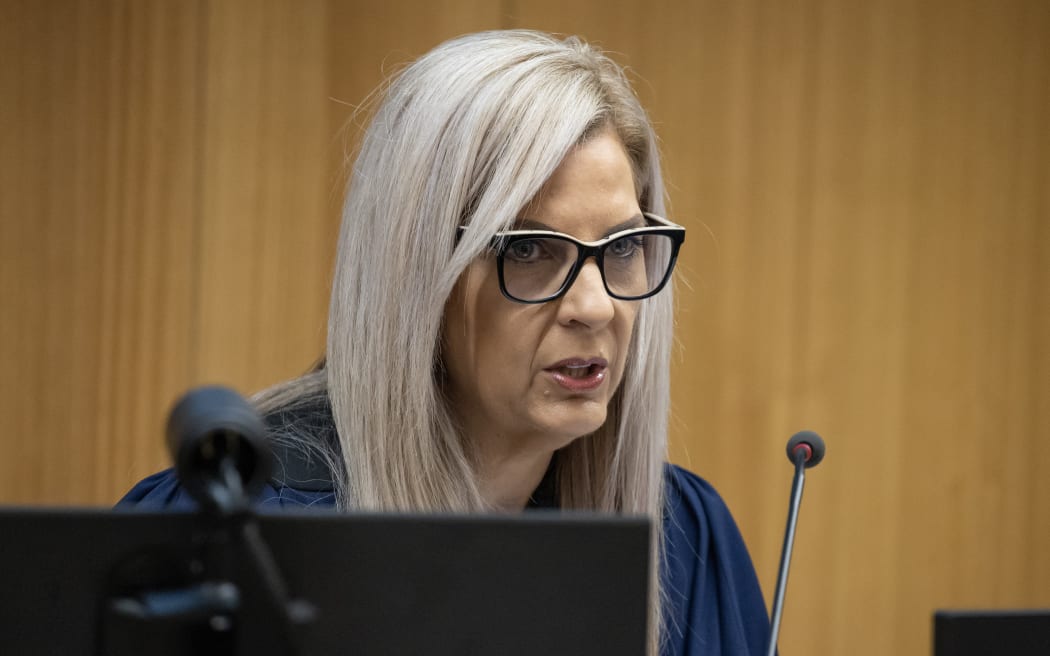
Deputy chief Coroner Brigitte Windley. Photo: Pool / Iain McGregor / The Press
In the afternoon, an hour-long audio-visual timeline providing an overview of the day of the attack was played to the court.
It was a "high-level overview of the events of the day", with both audio and visual content, Coroner Windley said.
"It does not contain every detail or point of importance and nor it is intended to.
"Its purpose is to orientate the court and those participating in these proceedings to those events. It's not an exhibit but it is drawn from the evidence."
The first witness, Detective Senior Sergeant Craig Farrant, took to the stand and told the court the investigation was the largest ever undertaken by New Zealand Police.
He was tasked as second in charge of Operation Deans.
"The 15 March 2019 attack on the Al Noor Mosque and the Linwood Islamic Centre in Christchurch is the single largest terrorist incident and mass homicide that New Zealand has experienced," Farrant said.
"This involved the largest response operation every undertaken by the New Zealand Police. In the space of 19 minutes, 49 people from our community had been murdered, and attempts were made to murder a further 42 people, leaving many with life threatening injuries. One of the injured victims died later that day in hospital and another, a few weeks after."
Within an hour of the attack at Al Noor Mosque, Farrant said Operation Deans was up and running. It was not the only investigation established as part of the terror attack.
By 6pm on the evening of the attack, Farrant said 69 Canterbury-based investigators were part of the investigation phase of the inquiry - not including all officers who initially responded.
Work was already underway to locate and move police staff to Christchurch - continuing until June 2019.
"Inside the first hour of the investigation, a total of 172 police staff were deployed as a result of the individual's actions. That number increased nationwide as police identified and reacted to other possible threats and undertook reassurance roles in various forms."
The investigation file currently sat at 8956 documents, he said.
Four major crime scenes were completed, 235 vehicles were searched and examined, and 1313 individual taskings were completed in direct response to the homicide investigation.
Under cross examination, Farrant agreed that every minute - and every second - mattered when trying to save lives.
He was also questioned about whether police could access information which alerted them to where a vehicle was located in the city.
Farrant said there were cameras that had license plate recognition. He had a basic understanding and could not say how many there were or were operating at the time of the attack.
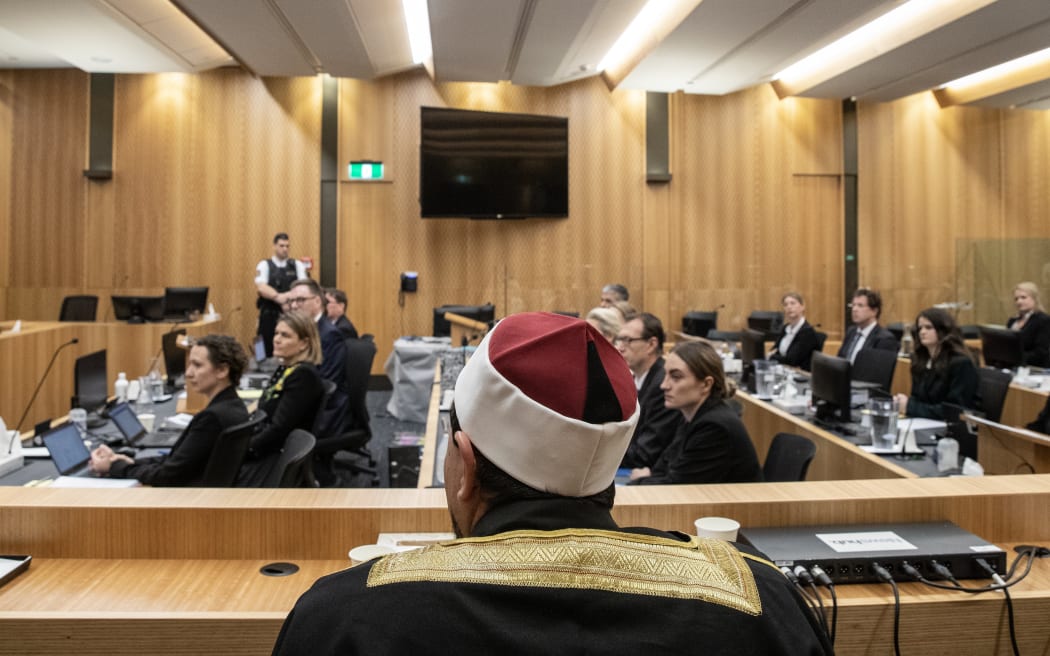
Al Noor Mosque Imam Gamal Fouda looks onto the courtroom. Photo: Pool / Iain McGregor / The Press
Coroner gives opening address
Earlier in the day, Coroner Windley said the 51 people who died were joined by the events that happened on 15 March 2019, but it did not define them - and they must each be remembered as a unique life that has been lost.
The events of 15 March 2019 deeply affected many and the impact could not be reduced to just a few words, she said.
Windley also recognised the emergency service personnel and witnesses who helped on the day and were forever impacted.
She acknowledged the inquiry would bring a range of emotions and was "acutely aware" of the responsibility of her role.
She said many had asked her what the point of the inquiry was, and what good could come from it.
The coronial inquest had a dual focus, she said, on the past and the future.
"An inquiry seeks to shine a light on the past by way of an inquisitory process, in an effort to make findings as to the cause and circumstances of death," she said.
"In identifying the contributors to death, the opportunity to fulfil another fundamental purpose of a coronial inquiry may arise. To look to the future, whether comments or recommendations may be made, to reduce the chances of further deaths in similar circumstances."
Coroner Windley said it was not about establishing liability or negligence - but about accountability for actions or inactions.
The road to this point was challenging and unpredictable, but all those involved were committed to a robust and transparent process, she said.
"The scale and complexity of this inquiry is unprecedented in this court."
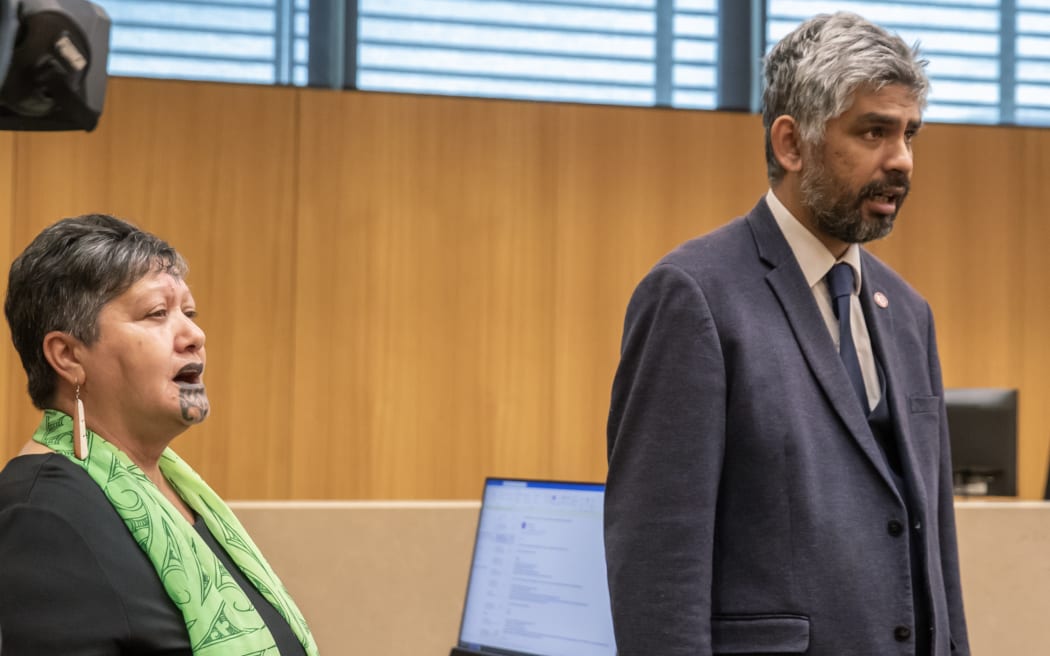
A whakatau and karakia were performed to open the inquest. Photo: Pool / Iain McGregor / The Press
Coroner Windley said the inquiry was the first time immediate family would have an opportunity to have access to information that had not been previously available.
It was not an inquiry "into the life of the man" found responsible for the deaths.
They were caused by the "deliberate and heinous actions of that individual".
But the inquiry presented an important and critical opportunity to find out what may be learnt "from this atrocity".
Coroner Windley said it took courage for many to be open and willing to reflect.
All involved with the inquest shared the common goal of reducing the chances of similar deaths in the future, she said.
"I ask simply that we keep each of the 51 people whose lives have been lost, and that common goal at the centre of this hearing."
As well as the coroner's opening address, a whakatau and karakia, followed by Imam Gamal Fouda reciting the Qu'ran, opened the proceedings.
A tribute video for those who lost their lives was then played to the court, a request made by the coroner to allow families to show a glimpse of the person their loved one was.
The inquest will examine the following 10 issues over the next six weeks:
- The events of 15 March 2019 from the commencement of the attack until the terrorist's formal interview by police.
- The response times and entry processes of police and ambulance officers at each mosque.
- The triage and medical response at each mosque.
- The steps that were taken to apprehend the offender.
- The role of, and processes undertaken by, Christchurch Hospital in responding to the attack.
- Co-ordination between emergency services and first responders.
- Whether the terrorist had any direct assistance from any other person on 15 March 2019.
- If raised by immediate family, and to the extent it can be ascertained, the final movements and time of death for each of the deceased.
- The cause of death for each of the victims and whether any deaths could have been avoided.
- Whether Al Noor Mosque emergency exit door in the south-east corner of the main prayer room failed to function during the attack and, if so, why?
The inquest continues.
